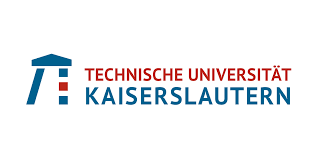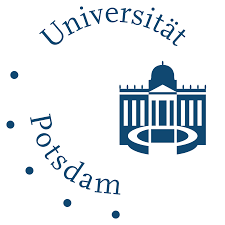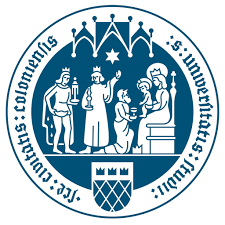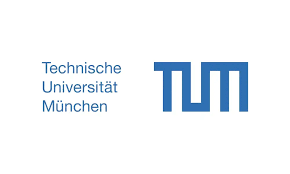MSc in Physics in Germany

Contents
Germany is a popular hub for students from all over the world, especially for those pursuing their MSc in Physics. With high academic standards, top-tier research, and many tuition-free opportunities, Germany offers an ideal setting for every aspiring physicist.
This article will guide you through the basics of studying a master’s in physics in Germany: top courses, admission prerequisites, and other relevant information.
MSc in Physics Tuition-Free Courses
One of the great perks of studying in Germany is that most of its programs are offered free of charge in public universities. This allows students to access quality education without worrying about sky-high tuition fees.
-
Public Universities: Most public universities in Germany offer tuition-free master's programs in physics. While you won’t pay tuition, there’s usually a small semester fee, typically ranging from €100 to €350, which covers administrative costs and services like public transportation.
-
Living Costs: Although tuition is often free, you should budget for living expenses, which usually range from €800 to €1,200 per month. These include accommodation, food, health insurance, and other personal expenses typically covered by your blocked account money.
-
Scholarships: To help cover living expenses, look into scholarships from organizations like DAAD (German Academic Exchange Service).
Admission Requirements for a Master's in Physics Degree
Being familiar with all the requirements will make sure that your application process is as smooth as possible! If you're still exploring your options or want a full overview of the student journey, check out our complete guide to studying in Germany.
Here is what you need to know:
University Degree Requirements
- Bachelor's Degree: You must have a relevant bachelor's degree in physics or a closely related field. Some programs may require specific coursework in mathematics or advanced physics topics.
- Entry Exams: Some universities allow you to take an entrance exam, allowing you to demonstrate your knowledge of physics and related subjects.
-
Preparatory Courses: If you haven't completed a bachelor's degree in physics or a closely related field but have taken other relevant courses or diplomas, you can submit these qualifications as part of your application.
Language Requirements
- German Proficiency: If your program is taught in German, you must demonstrate proficiency through tests like TestDaF or DSH.
- English Proficiency: For English-taught programs, tests like TOEFL or IELTS are required. Ensure you check the specific language requirements of your chosen program.
If you choose a degree program offered in both languages, you must demonstrate proficiency in both German and English. However, if your program is conducted solely in English, you only need to provide proof of English proficiency.
Admission Deadlines for Master's in Physics
Timing is crucial when applying for a master's program in Germany. Here are the typical deadlines:
- Winter Semester: The primary intake for most programs, with deadlines typically from mid-December to late March.
- Summer Semester: A secondary intake with fewer programs available. Deadlines generally fall between mid-May and late September.
English-Taught Physics Programs in Germany
Career Opportunities After a Master's in Physics
Deciding to complete a master's in Physics in Germany involves figuring out what the future looks like for physics graduates. Knowing what kind of career you can pursue after graduation is good practice.
Here are some professions you can explore after graduating:
- Academic Research: Continue with a Ph.D. or work in research at universities and institutes in various subfields of physics to advance the limits of knowledge.
- Industry Positions: Apply your expertise in the aerospace, defense, energy, and semiconductor sectors. Work on developing new technologies, optimizing processes, or advancing renewable energy solutions.
- Data Science & Analytics: Make use of your strong analytical and problem-solving skills within data science, machine learning, and quantitative analysis in the tech, financial services, and healthcare industries.
- Teaching & Education: Educate the next generation in physics either at schools or universities or conduct public outreach to make sophisticated scientific concepts accessible.
- Consulting: Offer technical and strategic advice in consulting firms, helping businesses solve complex problems in areas like technology, finance, or process management.
- Technological Advancements: Innovate in pioneering fields like telecommunications, robotics, or software by applying the basic principles of physics toward the development of new tools and technology.
- Environmental Science: Engage in climate modeling, environmental monitoring, or the development of sustainable technologies.
- Financial Sector: Give real-world application to your background in physics within the fields of quantitative finance, risk management, or actuarial science, applying mathematical models to solve financial problems.
Alternative Degree Options for Physics Students
Explore these alternative degrees if you’re considering broadening your career prospects beyond traditional physics roles. You can also explore more study programs in Germany to find a subject that aligns with your interests and goals.
Engineering Physics Degrees
These degrees combine physics with engineering principles and are ideal for those looking to apply physics concepts in technology and industry.
FAQs
Can I do an MSc in Physics in Germany?
Yes, you can pursue an MSc in Physics in Germany. The country is home to many top-ranked universities offering a wide range of master's programs in physics, often taught in English, making them accessible to international students.
Is Germany good for Physics?
Absolutely! Germany is renowned for its excellence in physics and strong tradition of research and innovation. The country hosts leading institutions, cutting-edge laboratories, and numerous opportunities for students to engage in groundbreaking research.
Is an MSc in Physics free in Germany?
At most public universities in Germany, MSc programs, including those in physics, are tuition-free. Students typically only pay a small semester fee, which covers administrative costs and student services. However, living expenses and costs at private universities should be considered.
Which MSc is best for physics?
The best MSc program in physics depends on your interests and career goals. Germany offers various specializations such as Theoretical Physics, Astrophysics, Quantum Physics, and Experimental Physics. Top universities like the University of Göttingen, Ludwig Maximilian University of Munich, and the University of Heidelberg offer highly regarded programs in these fields.
This might also be of interest to you

Summer Semester in Germany: Your Complete Guide for April 2026 Intake
Thinking about studying in Germany but missed the October deadline? The summer semester might be your perfect opportunity. While most international...

Why More Indian Students Are Choosing Germany Over the USA
In the last decade, Germany has become one of the fastest-growing study destinations for Indian students. While the USA once dominated the dreams of...

Top Courses for Indian Students in Germany vs USA (2026 Guide)
Studying abroad is a dream for many Indian students, but choosing the right country and course can be confusing. The United States and Germany are...

5 Cheapest Countries to Study Abroad for Indian Students (2026 Guide)
Studying abroad doesn't have to drain ₹40-60 lakhs from your family's savings. Five countries offer world-class education for under ₹10 lakhs per...

Germany vs USA: Which Is Better for Indian Students in 2025?
Choosing where to study abroad is a big deal, especially for Indian students. You're not just picking a country; you're deciding to move far from...

Germany Welcomes Displaced Harvard Students: A New Academic Home
In a move that’s left thousands of students in shock, the U.S. government has revoked Harvard University’s certification to enroll international...











